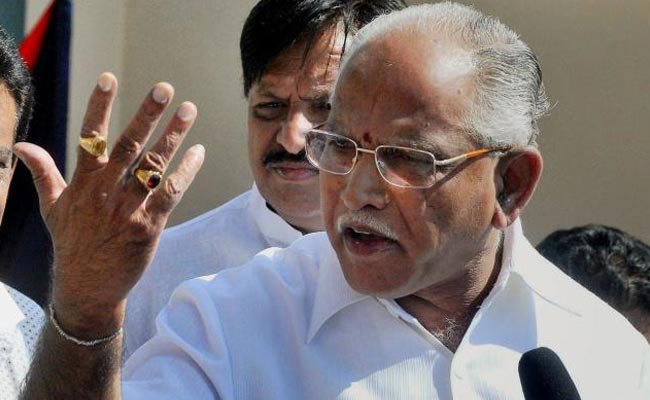The Ukrainian President said his country’s defence against the Russian invasion is at a “turning point” and again pressed the United States for more help, hours after the Kremlin’s forces reneged on a pledge to scale back some of their operations.
Russian bombardment of areas around Kyiv and the northern city of Chernihiv and intensified attacks elsewhere in the country further undermined hopes for progress toward ending the brutal war. Talks between Ukraine and Russia were set to resume on Friday by video, according to the head of the Ukrainian delegation, David Arakhamia.
A delegation of Ukrainian lawmakers visited Washington on Wednesday to push for more U.S. assistance, saying their nation needs more military equipment, more financial help and tougher sanctions against Russia.
“We need to kick Russian soldiers off our land, and for that we need all, all possible weapons,” Ukrainian parliament member Anastasia Radina said at a news conference at the Ukrainian Embassy.
Ukrainian President Volodymyr Zelenskyy made the case directly to U.S. President Joe Biden.
“If we really are fighting for freedom and in defence of democracy together, then we have a right to demand help in this difficult turning point. Tanks, aircraft, artillery systems. Freedom should be armed no worse than tyranny,” Mr. Zelenskyy said in his nightly video address to the nation, which he delivered standing in the dark outside the dimly lit presidential offices in Kyiv. He thanked the U.S. for an additional $500 million in aid that was announced on Wednesday.
There seemed little faith that Russia and Ukraine will resolve the conflict soon, particularly after the Russian military’s about-face and its most recent attacks.
Russia said on Tuesday that it would de-escalate operations near Kyiv and Chernihiv to “increase mutual trust and create conditions for further negotiations.” Mr. Zelenskyy and the West were skeptical. Soon after, Ukrainian officials reported that Russian shelling was hitting homes, stores, libraries and other civilian sites in or near those areas.
Russian troops also stepped up their attacks on the Donbas region in the east and around the city of Izyum, which lies on a key route to the Donbas, after redeploying units from other areas, the Ukrainian side said.
Olexander Lomako, secretary of the Chernihiv city council, said the Russian announcement turned out to be “a complete lie.”
“At night they didn’t decrease, but vice versa increased the intensity of military action,” Mr. Lomako said.
A top British intelligence official said on Thursday that demoralized Russian soldiers in Ukraine were refusing to carry out orders and sabotaging their own equipment and had accidentally shot down their own aircraft.
In a speech in the Australian capital Canberra, Jeremy Fleming, who heads the GCHQ electronic spy agency, said President Vladimir Putin had apparently “massively misjudged” the invasion, he said. Although Mr. Putin’s advisers appeared to be too afraid to tell the truth, the “extent of these misjudgments must be crystal clear to the regime,” he said.
U.S. intelligence officials have given similar assessments that Mr. Putin is being misinformed by his advisors about the poor performance of his military in Ukraine because they are too afraid to tell him the truth.
Five weeks into the invasion that has left thousands dead on both sides, the number of Ukrainians fleeing the country topped a staggering 4 million, half of them children, according to the United Nations.
“I do not know if we can still believe the Russians,” Nikolay Nazarov, a refugee from Ukraine, said as he pushed his father’s wheelchair at a border crossing into Poland. “I think more escalation will occur in eastern Ukraine. That is why we cannot go back to Kharkiv.”
Mr. Zelenskyy said the continuing negotiations with Russia were only “words without specifics.” He said Ukraine was preparing for concentrated new strikes on the Donbas.
Mr. Zelenskyy also said he had recalled Ukraine’s ambassadors to Georgia and Morocco, suggesting they had not done enough to persuade those countries to support Ukraine and punish Russia for the invasion.
“With all due respect, if there won’t be weapons, won’t be sanctions, won’t be restrictions for Russian business, then please look for other work,” he said.
During talks on Tuesday in Istanbul, the faint outlines of a possible peace agreement seemed to emerge when the Ukrainian delegation offered a framework under which the country would declare itself neutral — dropping its bid to join NATO, as Moscow has long demanded — in return for security guarantees from a group of other nations.
Top Russian officials responded positively, with Foreign Minister Sergey Lavrov saying on Wednesday that Ukraine’s willingness to accept neutrality and look outside NATO for security represents “significant progress,” according to Russian news agencies.
But those statements were followed by attacks.
Oleksandr Pavliuk, head of the Kyiv region military administration, said Russian shells targeted residential areas and civilian infrastructure in the Bucha, Brovary and Vyshhorod regions around the capital.
Russian Defence Ministry spokesman Maj. Gen. Igor Konashenkov said the military also targeted fuel depots in two towns in central Ukraine with air-launched long-range cruise missiles. Russian forces hit a Ukrainian special forces headquarters in the southern Mykolaiv region, he said, and two ammunition depots in the Donetsk region, in the Donbas.
In southern Ukraine, a Russian missile destroyed a fuel depot in Dnipro, the country’s fourth-largest city, regional officials said.
The U.S. said Russia had begun to reposition less than 20% of its troops that had been arrayed around Kyiv. Pentagon press secretary John Kirby said troops from there and some other zones began moving mostly to the north, and some went into neighbouring Belarus. Mr. Kirby said it appeared Russia planned to resupply them and send them back into Ukraine, but it is not clear where.
The Ukrainian military said some Russian airborne units were believed to have withdrawn into Belarus.
In northern Ukraine, Russian forces took no offensive actions on Wednesday, focusing on reconnaissance and logistics, the general staff said in a statement. But Russia is expected to increase attacks soon to protect its own troops as they are repositioned, it said.
The Russians also are expected to try to blockade Chernihiv.
Top Russian military officials say their main goal now is the “liberation” of the Donbas, the predominantly Russian-speaking industrial heartland where Moscow-backed separatists have been battling Ukrainian forces since 2014.
Some analysts have suggested that the focus on the Donbas and the pledge to de-escalate may merely be an effort to put a positive spin on reality: Moscow’s ground forces have been thwarted — and have taken heavy losses — in their bid to seize the capital and other cities.




